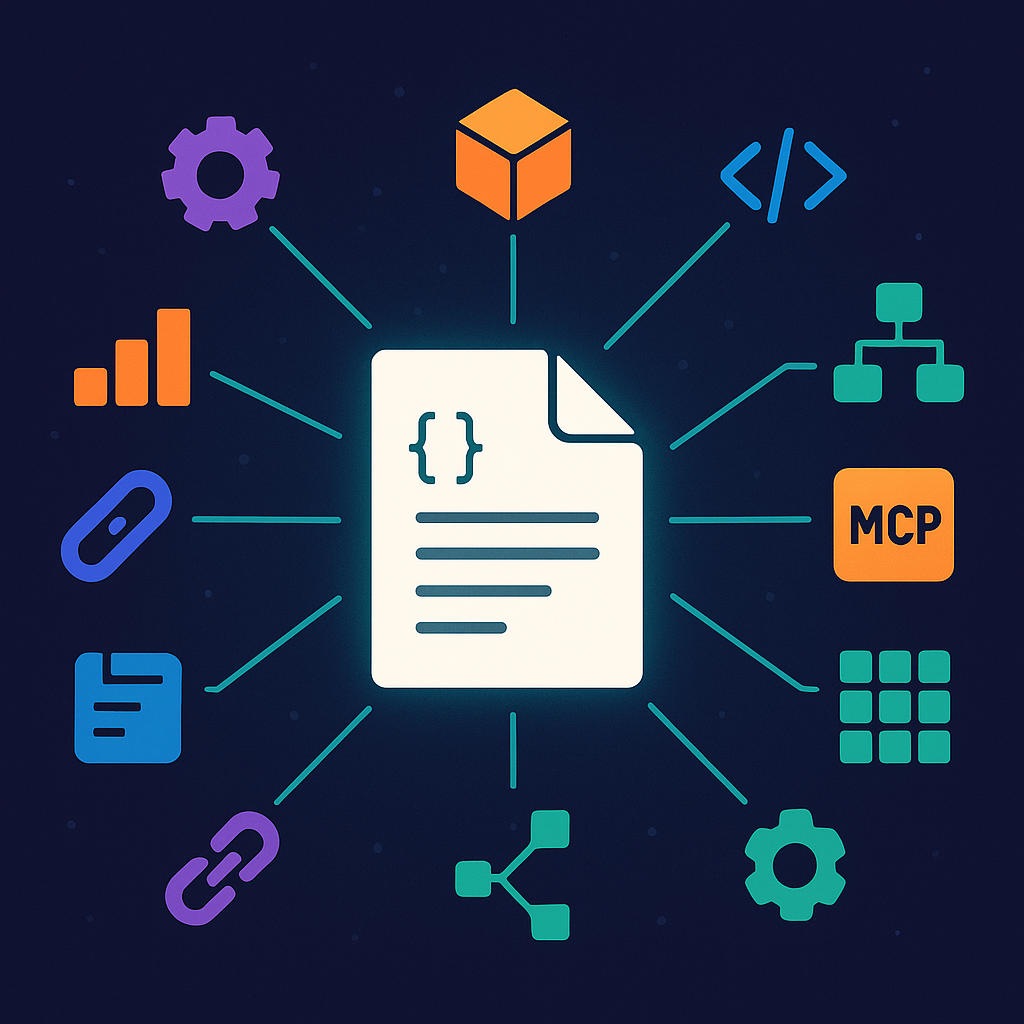
From OpenAPI Specs to MCP Tools: Gentoro’s Agent-Aligned Advantage for Enterprises
Why MCP Tools From OpenAPI Specs Matter
As the AI ecosystem continues to rapidly evolve, one of the most exciting standards shaping the future of enterprise-ready AI is the Model Context Protocol (MCP). MCP makes it possible for large language models (LLMs) and intelligent agents to interact seamlessly with and across software systems through well-defined tools.
However, most APIs were not designed with AI agents in mind. Instead, they were built for developers: human beings who can interpret vague documentation, patch over inconsistencies, and apply common sense and past experience. Conversely, AI agents need clarity, consistency, and interoperability from the start.
If your business relies on APIs, then the creation of agent-ready MCP Tools from Open API specs is the fastest, smartest way to bring your systems into the agentic era.
There are a couple of different approaches for generating MCP Tools, including SDK-based generators and agent-aligned generators, and scores of commercially-available utilities that will create MCP Tools using one approach or the other.
However, Gentoro stands apart from the rest as the enterprise-ready platform for creating, managing, and securing MCP Tools at scale.
The Current Landscape of OpenAPI-to-MCP Generators
OpenAPI is the de facto standard for describing REST APIs, and you’ll already be familiar with it if you've ever worked with Swagger or Postman. OpenAPI specs give developers a blueprint for interaction with APIs, including endpoints, parameters, request types, and responses.
MCP Tools, on the other hand, are specifically designed for AI agents. More than a mere blueprint, MCP Tools are clear and deliberate instructions that enable an agent to correctly reason what each Tool does, when to use it, and how to couple it with other Tools to execute the desired action or produce the information requested of it.
When you successfully bridge the gap between OpenAPI and MCP, your APIs become integrated into an agentic AI ecosystem.
10 Products That Generate MCP Tools From OpenAPI Specs
Several products can already create Model Context Protocol tools based on OpenAPI specs. These fall broadly into two categories: SDK-based generators and agent-aligned generators.
Here’s a quick survey:
Being that all of these utilities can take OpenAPI specs and create MCP Tools or servers, they might seem pretty similar at first glance. However, the underlying approaches (SDK-based generation vs. agent-aligned generation) have fundamental differences, and they are designed for different needs.
The Limits of SDK-Based Generators
APIs were built for developers, not agents
Most tools on the market today are SDK-based. They mechanically convert an OpenAPI spec into tools that mirror the API structure. For developers, this is a convenience: you get type-safe code, validation, and language wrappers without extra work.
SDKs typically add:
- Type-safe method signatures
- Input validation and error handling
- Idiomatic naming for the target language
- Simplified abstractions for HTTP calls
For the human developer writing client code, an SDK-based approach is very helpful. But AI agents (which are, famously, neither developers nor humans) will respond to an SDK-generated MCP Tool with confusion and failure.
The problems of ambiguity, naming, and consistency
Humans routinely work through poor documentation or inconsistencies in naming. An engineer might realize that customerId and client_id mean the same thing; an agent will not.
For agents to work reliably, MCP Tools need:
- Clear naming: so intent can be inferred without guessing
- Consistent semantics: no mix-and-match terminology
- Disambiguation: tools should not sound so similar that an agent can’t tell them apart
- Inter-tool compatibility: outputs and inputs should align for seamless chaining
SDK-based generators rarely address these challenges. They reproduce the quirks of the API, which often leads to silent failures, wrong tool selection, or incomplete workflows.
That’s where Gentoro’s agent-aligned approach sets it apart.
The Agent-Aligned Approach to MCP Tools
When you’re generating MCP Tools for AI agents, Gentoro has your back. Unlike SDK-based generators (which merely translate specs), Gentoro leverages the power of LLMs to interpret specs and then optimizes them for agent usability.
Here’s how Gentoro works:
- Initial Conversion: Gentoro ingests your OpenAPI spec and generates a baseline MCP tool.
- Agent-Focused Refinement: Using natural language, you refine names, descriptions, and tool behaviors so your agents can make sense of them.
- Iterative Tuning: Gentoro supports “vibing your way to it,” allowing you to improve tools until they’re perfectly aligned with agent reasoning.
- Enterprise-Grade Security: With governance, access controls, and monitoring, Gentoro ensures your MCP Tools are secure, scalable, and production-ready.
The result: MCP Tools that agents can not only access, but actually use effectively.
The Strategic Shift: Choosing the Right Platform for MCP Tools
As growing numbers of enterprises embrace AI agents for automation, customer engagement, and decision support, those who manage to integrate their systems quickly and securely will emerge as leaders. And easily generating MCP Tools from OpenAPI specs is no longer optional for enterprises looking to harness AI agents. So while SDK-based generators may provide a starting point, true agent usability demands more.
With an agent-aligned platform like Gentoro, your APIs become secure, reliable, and effective participants in the AI-first enterprise. With Gentoro, you get MCP Tools that are:
- Enterprise-secure: with compliance, access controls, and governance built in from the start
- Agent-optimized: designed for the way agentic AI reasons, not for how a human developer codes
- Developer-friendly: with familiar SDK support in Java, Python, and TypeScript
- Future-proof: aligned with the MCP standard for long-term interoperability
Gentoro is unique in that it delivers MCP Tools that are secure yet future-proof and agent-optimized yet developer-friendly. But don’t just take our word for it. Cruise on over to the Gentoro Playground and give it a try!
Customized Plans for Real Enterprise Needs
Gentoro makes it easier to operationalize AI across your enterprise. Get in touch to explore deployment options, scale requirements, and the right pricing model for your team.

